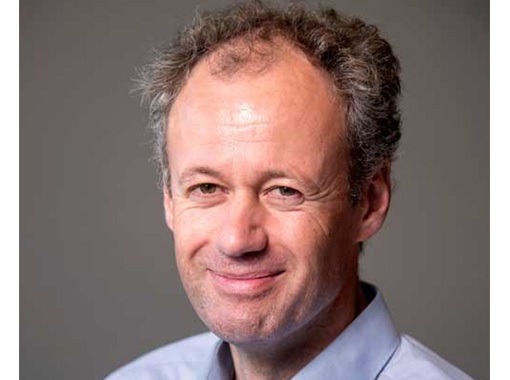Legacy and emerging pollutants from land to the Arctic Ocean

Háskólabíó, Room 3
Dr. Rainer Lohmann, Professor at the University of Rhode Island’s Graduate School of Oceanography gives a lecture titled Legacy and emerging pollutants from land to the Arctic Ocean.
Abstract
Some of the most notorious organic contaminants in the world are persistent and bioaccumulative, including polychlorinated biphenyls (PCBs), organochlorine pesticides (such as DDT), and per- and polyfluorinated alkyl substances (PFAS). These man-made chemicals pose risk to humans near production and contaminated sites, but also in the Arctic region.
Professor and Fulbright Specialist Rainer Lohmann will present the state of knowledge of such harmful man-made chemicals and discuss the science policy interface towards a better regulation, such as the current negotiations on a new UN Panel on Chemicals, Waste and Pollution prevention. Research highlights that the fate of these chemicals differ based on their physico-chemistry: PFAS are soluble in water and enter the oceans predominantly by atmospheric transport. However, there are first signs that PFAS are entering the arctic oceans by water masses as well. PCBs, in contrast, are hydrophobic and are transported via currents. Both PCBs and PFAS bioaccumulate in marine biota, but pathways and tissue distributions differ. Within Europe, fish consumption is estimated to account for 70-80% of human PFAS uptake. In the US, new regulation by the US EPA limits PFAS to trace levels in drinking water, while the EU is debating a total ban of PFAS based on the concept of essential uses only. These developments call for a concerted effort to limit production of harmful chemicals, and limit their use to those instances, for which no suitable alternatives can be found.
Short bio
Dr. Rainer Lohmann is a Professor at the University of Rhode Island’s Graduate School of Oceanography. He obtained a degree in Chemical Engineering (EHICS, Strasbourg, France) and a Doctorate in Environmental Science (Lancaster University, UK). He is Director of the URI-led Superfund Research Program Center on the Sources, Transport, Exposure and Effects of PFAS (STEEP). His research focuses on the detection, fate and transport of anthropogenic pollutants in the environment, often relying on passive samplers in the process.
Dr. Lohmann served on the Executive Committee of the U.S. EPA’s Board of Scientific Counselors 2017-2023, and was awarded a Fulbright Fellowship as part of the Fulbright Arctic Initiative III in 2020, and an Alexander-von-Humboldt Fellowship in 2011. As a member of the Global PFAS Science Panel and the International Panel on Chemical Pollution, Lohmann aims to make science relevant for policymakers. He is visiting the University of Iceland as a Fulbright Specialist with support from Fulbright Iceland.
Dr. Rainer Lohmann, Professor at the University of Rhode Island’s Graduate School of Oceanography



